第20章 Chapter 5(5)
I purposely keep back the subject until you see my conception of its capabilities --otherwise you would be planning a vase fit to give the go-by to Evander's best crockery,which my cantharus would cut but a sorry figure beside --hardly up to the ansa.
But such as it is,it is very earnest and suggestive --and likely I hope to do good;and though I am rather scared at the thought of a FRESH EYE going over its 4,000lines --discovering blemishes of all sorts which my one wit cannot avail to detect,fools treated as sages,obscure passages,slipshod verses,and much that worse is,--yet on the whole I am not much afraid of the issue,and I would give something to be allowed to read it some morning to you --for every rap o'the knuckles I should get a clap o'the back,I know.
I have another affair on hand,rather of a more popular nature,I conceive,but not so decisive and explicit on a point or two --so I decide on trying the question with this:--I really shall NEED your notice,on this account;I shall affix my name and stick my arms akimbo;there are a few precious bold bits here and there,and the drift and scope are awfully radical --I am 'off'for ever with the other side,but must by all means be 'on'with yours --a position once gained,worthier works shall follow --therefore a certain writer who meditated a notice (it matters not laudatory or otherwise)on 'Pauline'
in the 'Examiner',must be benignant or supercilious as he shall choose,but in no case an idle spectator of my first appearance on any stage (having previously only dabbled in private theatricals)and bawl 'Hats off!''Down in front!'&c.,as soon as I get to the proscenium;and he may depend that tho'my 'Now is the winter of our discontent'
be rather awkward,yet there shall be occasional outbreaks of good stuff --that I shall warm as I get on,and finally wish 'Richmond at the bottom of the seas,'&c.in the best style imaginable.
Excuse all this swagger,I know you will,and (The signature has been cut off;evidently for an autograph.)Mr.Effingham Wilson was induced to publish the poem,but more,we understand,on the ground of radical sympathies in Mr.Fox and the author than on that of its intrinsic worth.
The title-page of 'Paracelsus'introduces us to one of the warmest friendships of Mr.Browning's life.Count de Ripert-Monclar was a young French Royalist,one of those who had accompanied the Duchesse de Berri on her Chouan expedition,and was then,for a few years,spending his summers in England;ostensibly for his pleasure,really --as he confessed to the Browning family --in the character of private agent of communication between the royal exiles and their friends in France.He was four years older than the poet,and of intellectual tastes which created an immediate bond of union between them.In the course of one of their conversations,he suggested the life of Paracelsus as a possible subject for a poem;but on second thoughts pronounced it unsuitable,because it gave no room for the introduction of love:about which,he added,every young man of their age thought he had something quite new to say.
Mr.Browning decided,after the necessary study,that he would write a poem on Paracelsus,but treating him in his own way.It was dedicated,in fulfilment of a promise,to the friend to whom its inspiration had been due.
The Count's visits to England entirely ceased,and the two friends did not meet for twenty years.Then,one day,in a street in Rome,Mr.Browning heard a voice behind him crying,'Robert!'
He turned,and there was 'Amedee'.Both were,by that time,married;the Count --then,I believe,Marquis --to an English lady,Miss Jerningham.
Mrs.Browning,to whom of course he was introduced,liked him very much.Mr.Browning did treat Paracelsus in his own way;and in so doing produced a character --at all events a history --which,according to recent judgments,approached far nearer to the reality than any conception which had until then been formed of it.
He had carefully collected all the known facts of the great discoverer's life,and interpreted them with a sympathy which was no less an intuition of their truth than a reflection of his own genius upon them.
We are enabled in some measure to judge of this by a paper entitled 'Paracelsus,the Reformer of Medicine',written by Dr.Edward Berdoe for the Browning Society,and read at its October meeting in 1888;and in the difficulty which exists for most of us of verifying the historical data of Mr.Browning's poem,it becomes a valuable guide to,as well as an interesting comment upon it.
Dr.Berdoe reminds us that we cannot understand the real Paracelsus without reference to the occult sciences so largely cultivated in his day,as also to the mental atmosphere which produced them;and he quotes in illustration a passage from the writings of that Bishop of Spanheim who was the instructor of Paracelsus,and who appears as such in the poem.The passage is a definition of divine magic,which is apparently another term for alchemy;and lays down the great doctrine of all mediaeval occultism,as of all modern theosophy --of a soul-power equally operative in the material and the immaterial,in nature and in the consciousness of man.